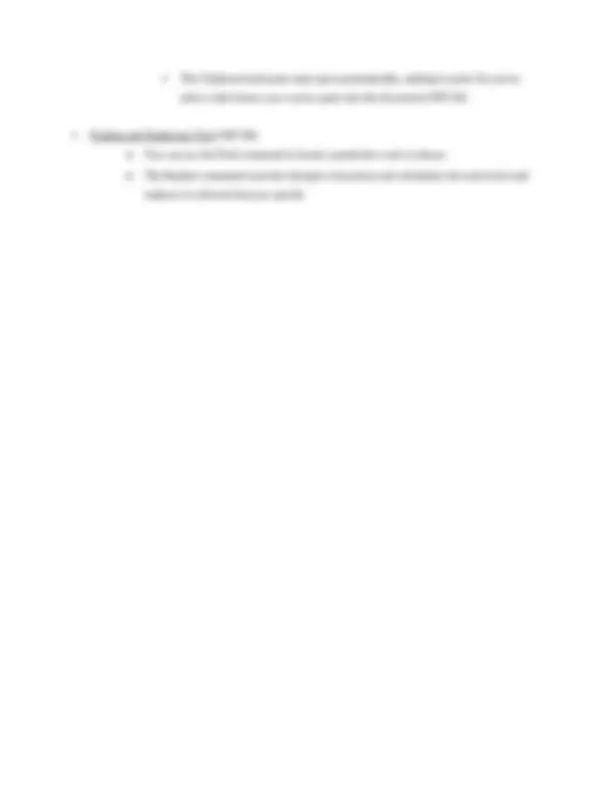



Study with the several resources on Docsity

Earn points by helping other students or get them with a premium plan


Prepare for your exams
Study with the several resources on Docsity

Earn points to download
Earn points by helping other students or get them with a premium plan
Community
Ask the community for help and clear up your study doubts
Discover the best universities in your country according to Docsity users
Free resources
Download our free guides on studying techniques, anxiety management strategies, and thesis advice from Docsity tutors
Instructions on using microsoft word's spelling and grammar checker to identify errors in a document and editing text by selecting, deleting, dragging and dropping, cutting, copying, and pasting. It also covers finding and replacing text.
Typology: Study notes
1 / 3

This page cannot be seen from the preview
Don't miss anything!


Editing and Formatting a Document January 18, 2007 Spelling and Grammar Check: o When proofreading a finished document, it is often a good idea to begin by using the Spelling and Grammar checker. The Spelling and Grammar checker can find and identify a variety of errors within a document. In many cases, it will actually identify items that are not errors (WD 46). o The Spelling and Grammar checker can be accessed by in two ways (WD 46): Spelling and Grammar button from the Standard toolbar. Clicking Tools from the Menu Bar , then clicking Spelling and Grammar. o A Spelling and Grammar check will be performed from the insertion point downward. Therefore to check an entire document, you will want to position the insertion point at the top of the document before beginning (WD 46): Errors will be highlighted in either green or red. Grammatical errors will be shown in green. o Grammatical errors will be shown in green. o Spelling errors will be shown in red. o To accept a correction, click on it in the Suggestions list box and then click the Change button. Click Ignore Once to not correct the current instance of the highlighted text and continue to look for more errors. Click Ignore All to not correct all instances of the highlighted text and continue searching the document for spelling errors. o The Spelling and Grammar checker compares the words in your document to the default dictionary that is installed automatically in Word. Therefore, Microsoft Word will sometimes recognize a correctly spelled a word as being misspelled (particularly in the case of people’s names). If you use words not found in the default dictionary, you can add these words to a custom dictionary (WD 46). o The Spelling and Grammar checker is a wonderful tool, but it is far from perfect. Carefully proofread your documents (WD 48).
Working with Text: o Before you can do anything to text, you will most likely need to select (a.k.a. “highlight”) it (WD 49). o The selection bar is the blank space in the left margin area of the document window (WD 49). o Use the Mouse to Select Text (WD 49): To select a word , double-click the word. To select a line , click on the insertion bar next to the line. To select a sentence , click at the beginning of the sentence and drag the mouse to the left until the sentence is highlighted. To select multiple lines , click and drag in the selection bar next to the lines. To select a paragraph , double-click in the selection bar next to the lines or triple- click within the paragraph. To select an entire document , triple-click in the selection bar. o Deleting Text (WD 50): To delete text , you need to first select or highlight text. You can then type new text to replace the highlighted text. Or you could hit the delete key. o Dragging and Dropping Text (WD 51): To drag and drop text , you select the text you want to move, press and hold down the mouse button while you drag the selected text to a new location, and then release the mouse button (WD 51). o Cutting or Copying and Pasting Text (WD 54): The Clipboard is a feature that temporarily stores text or graphics until you need them later. To cut means to remove text from the document and place it on the Clipboard. To copy means to make a copy of the text and place it on the Clipboard. To paste means to actually transfer a copy of the text from the Clipboard into the document at the location of the insertion point.